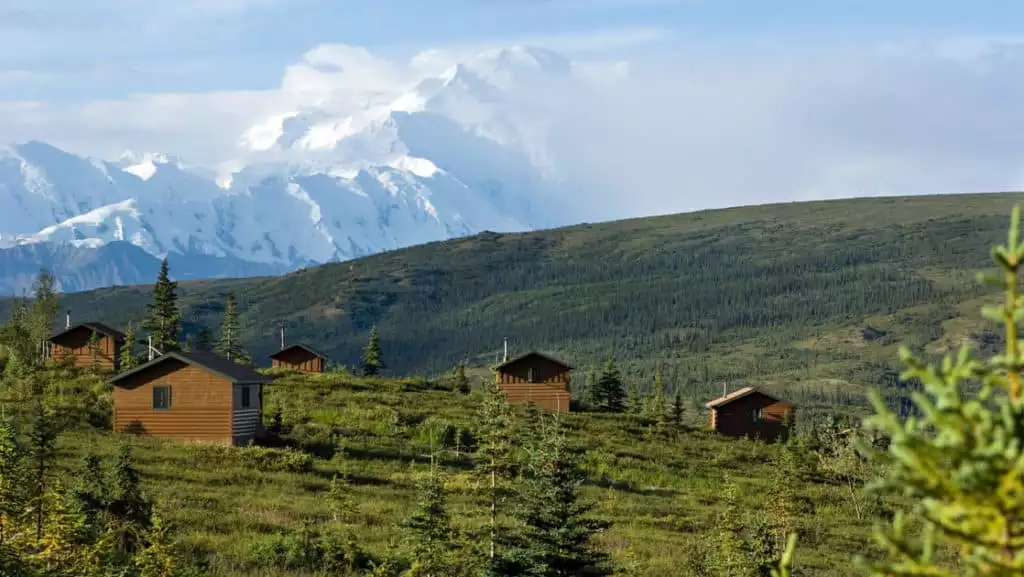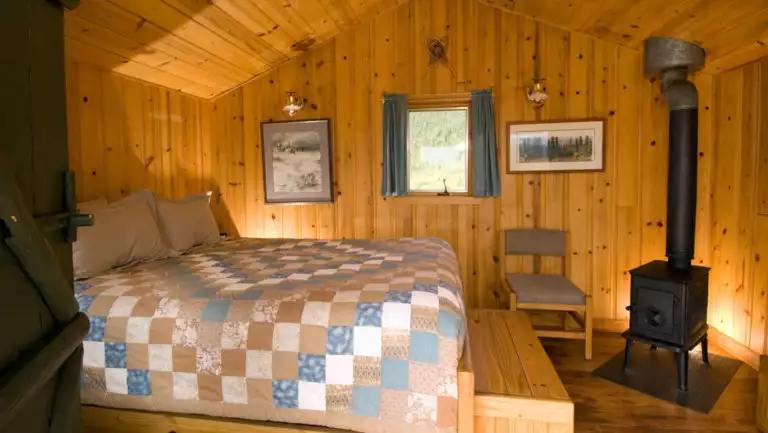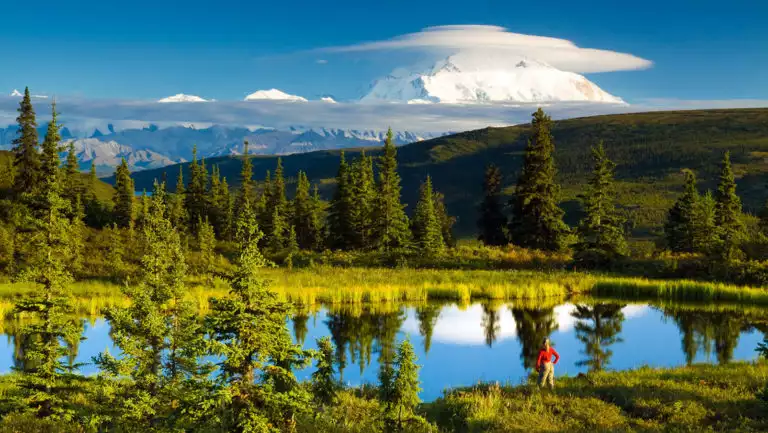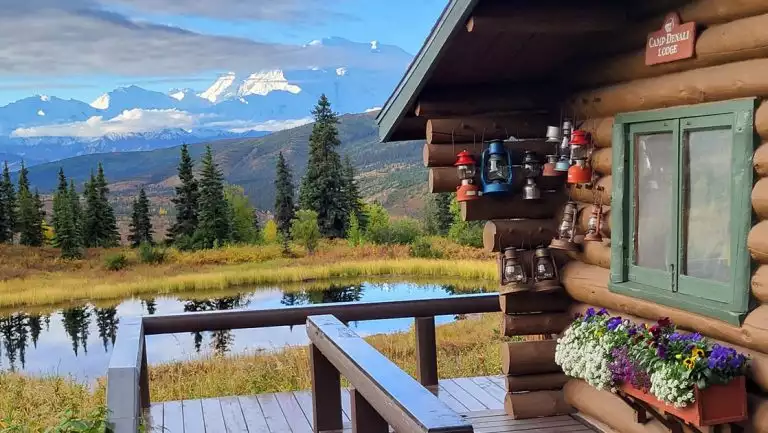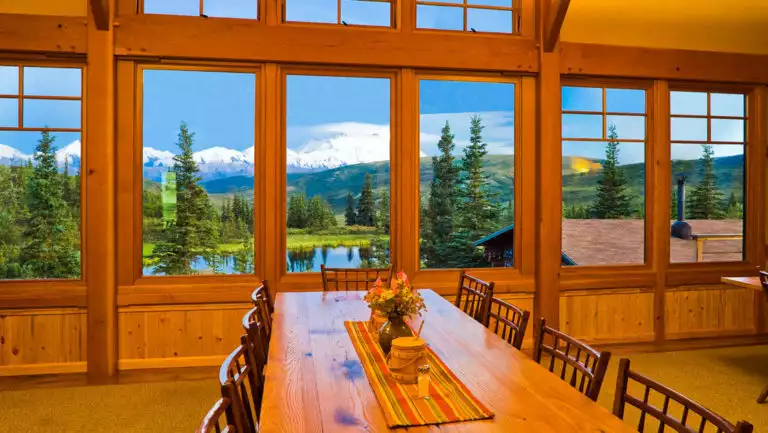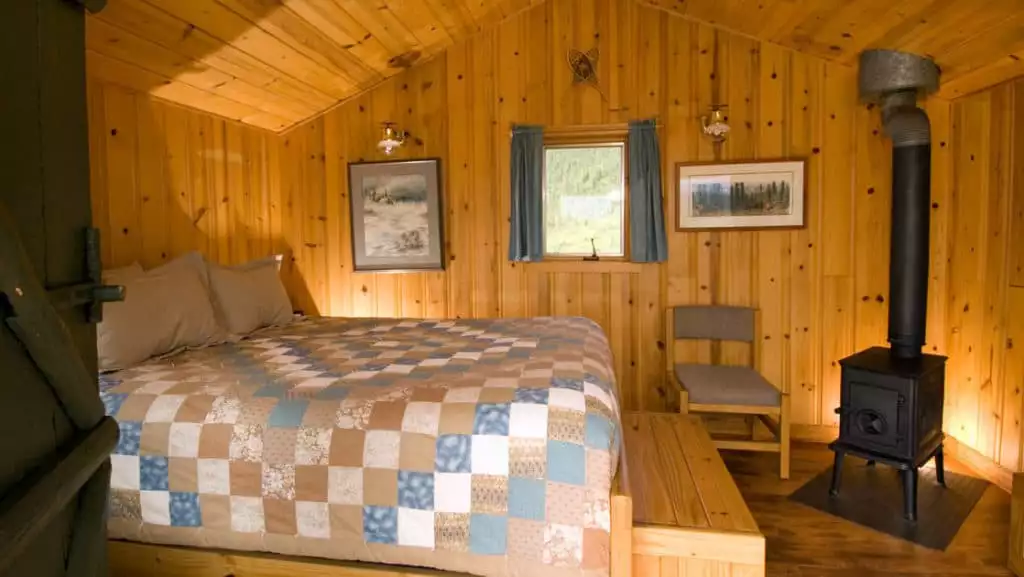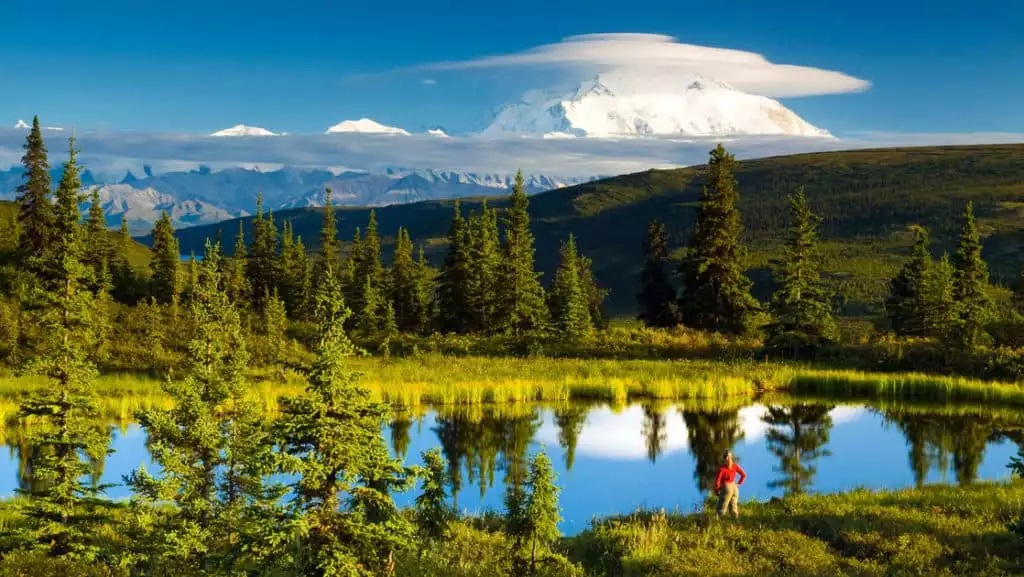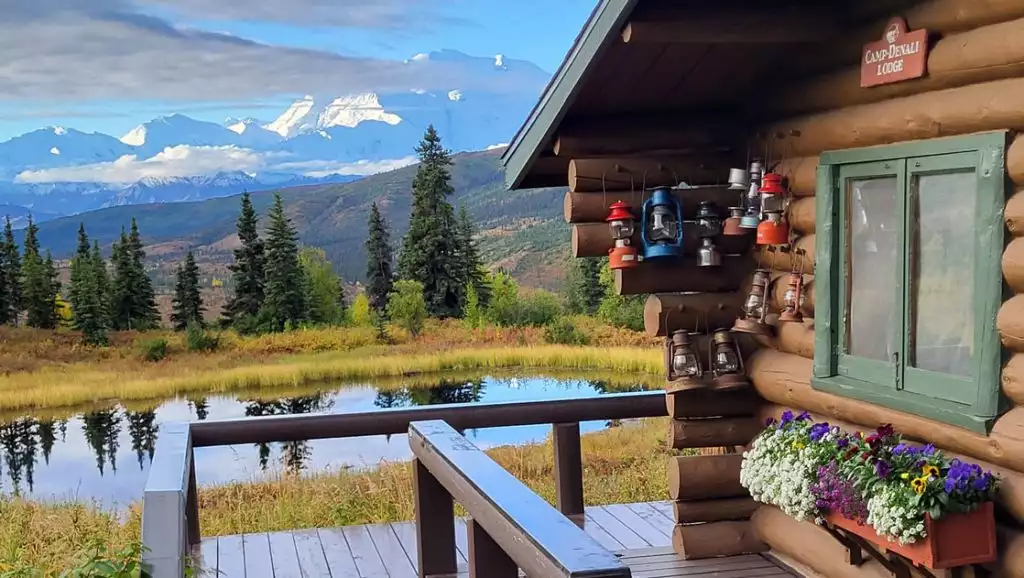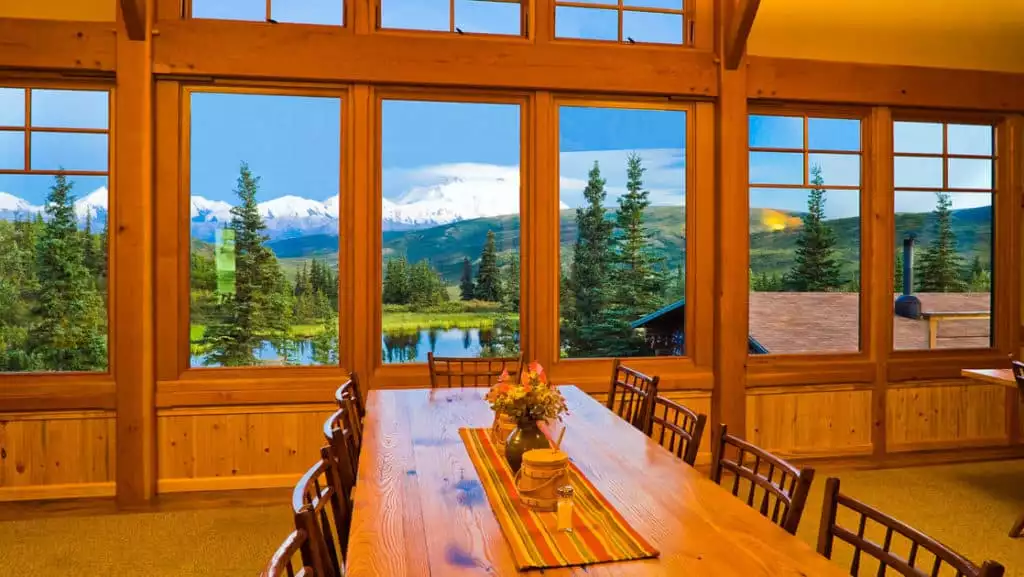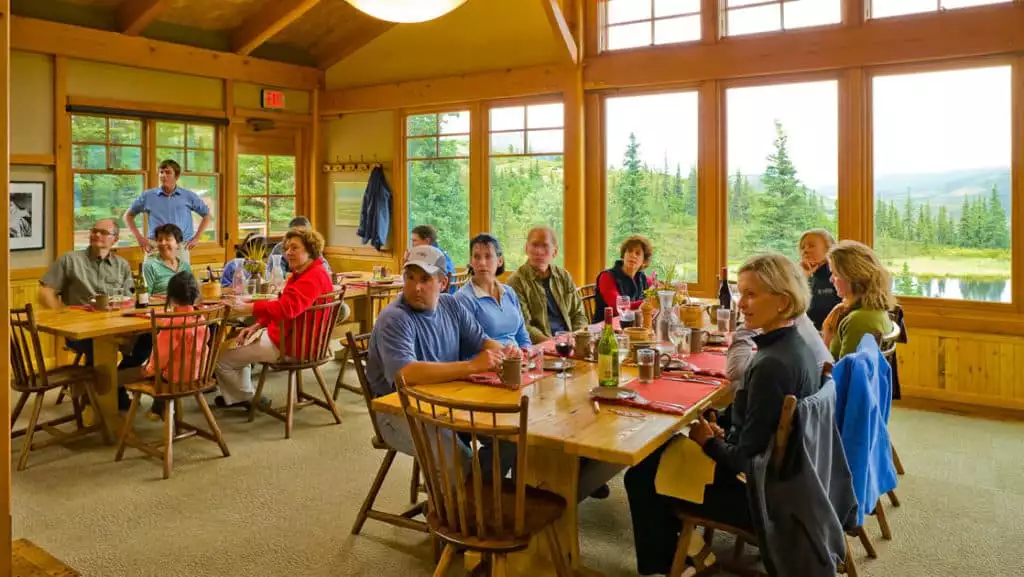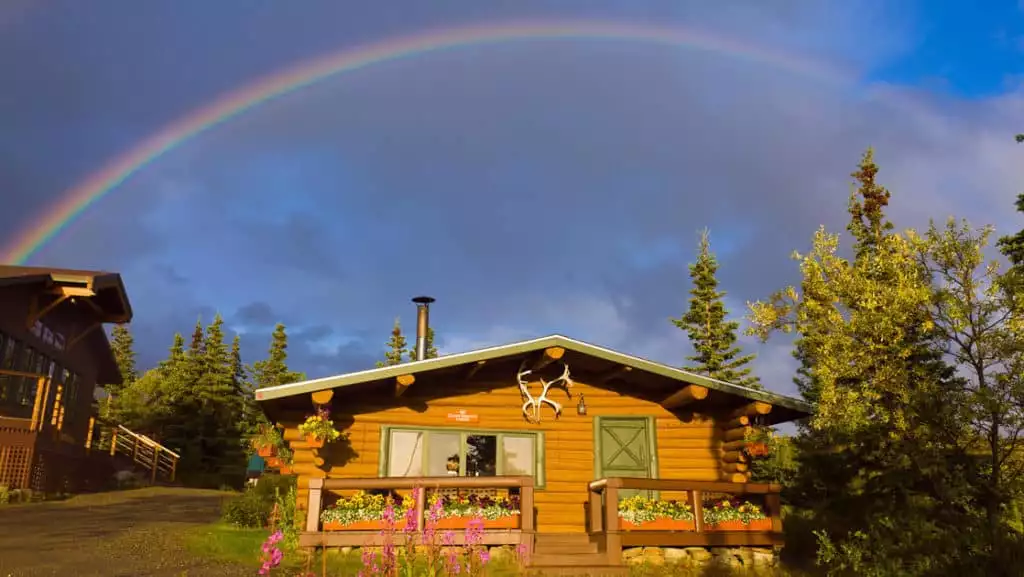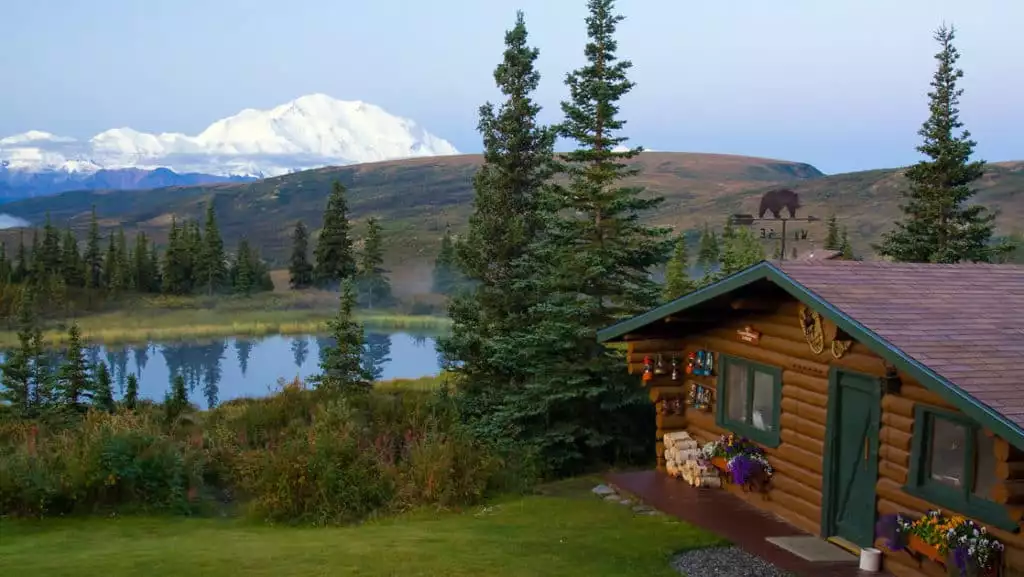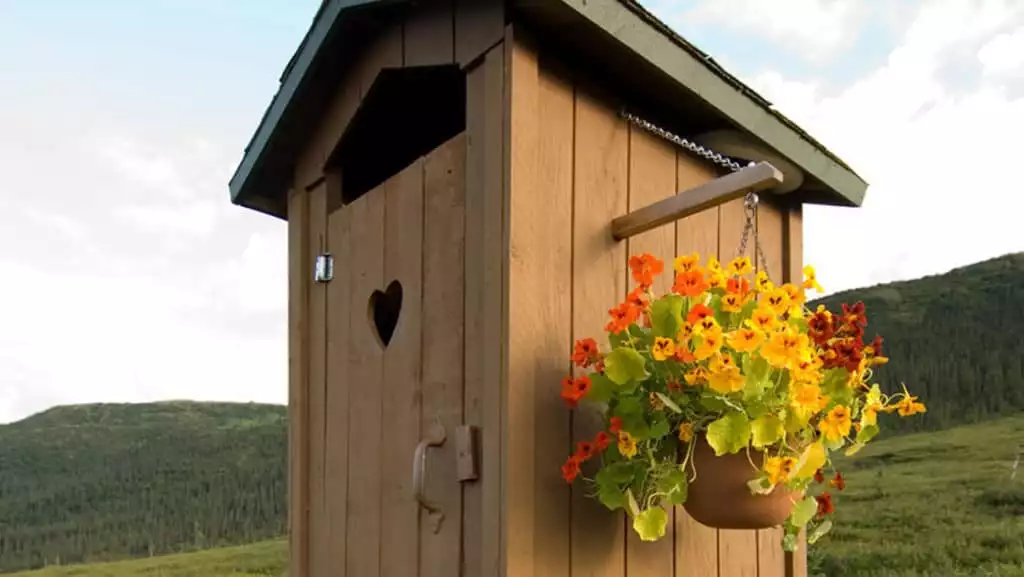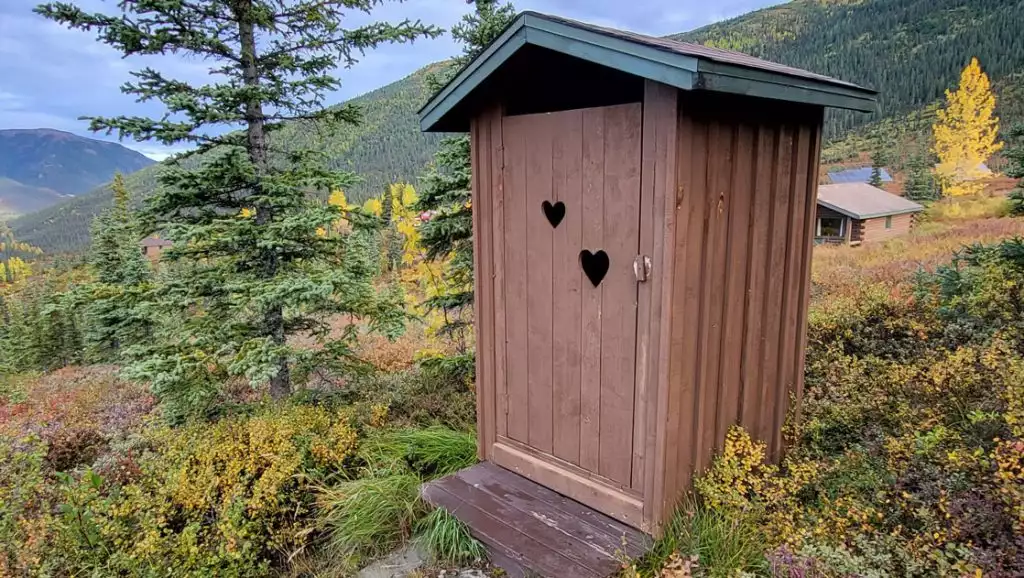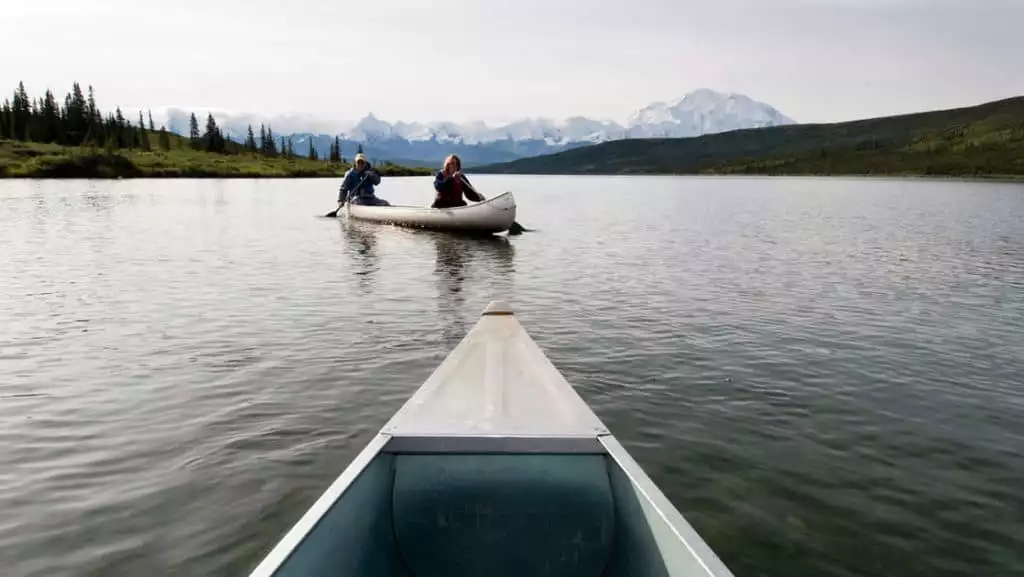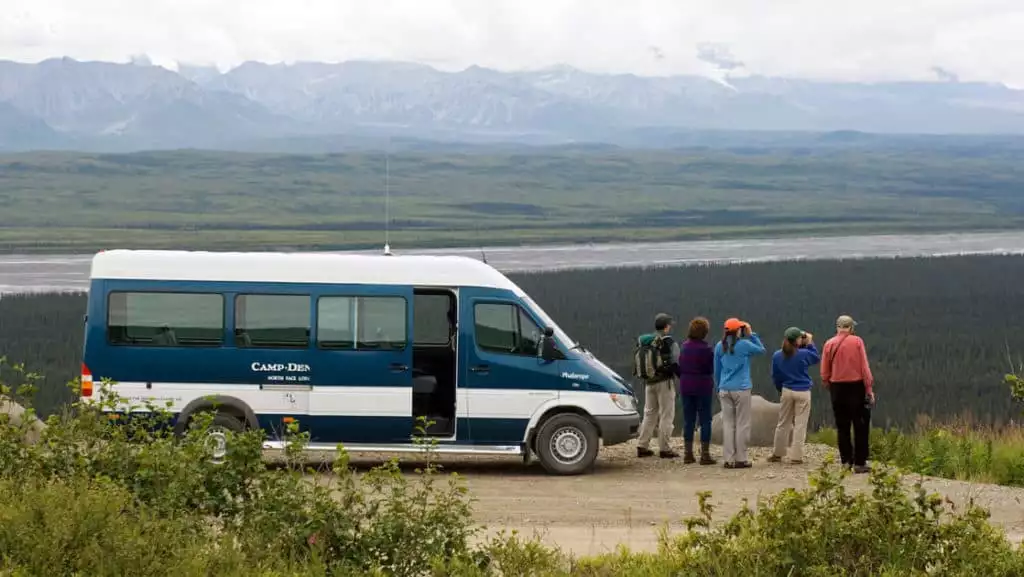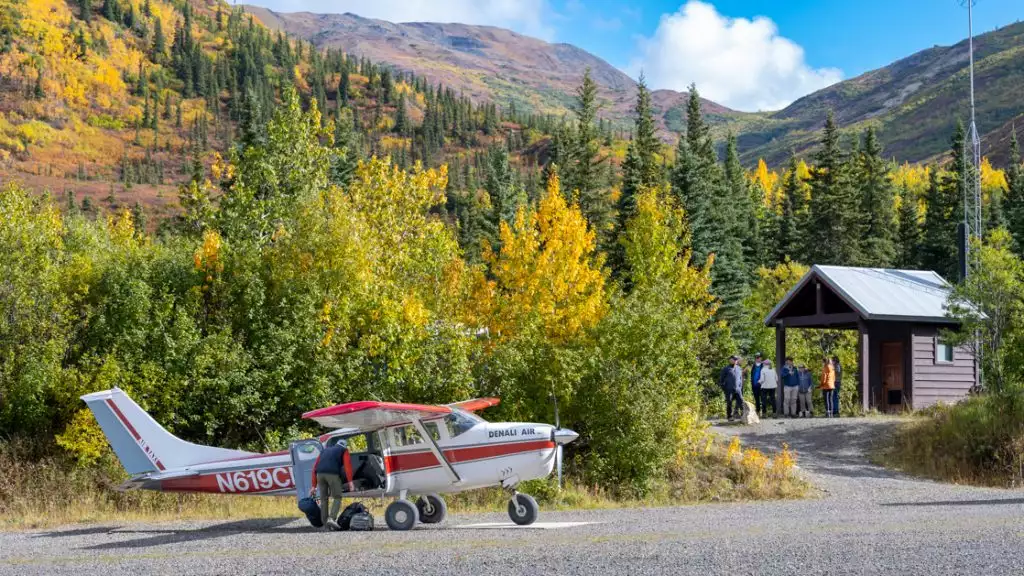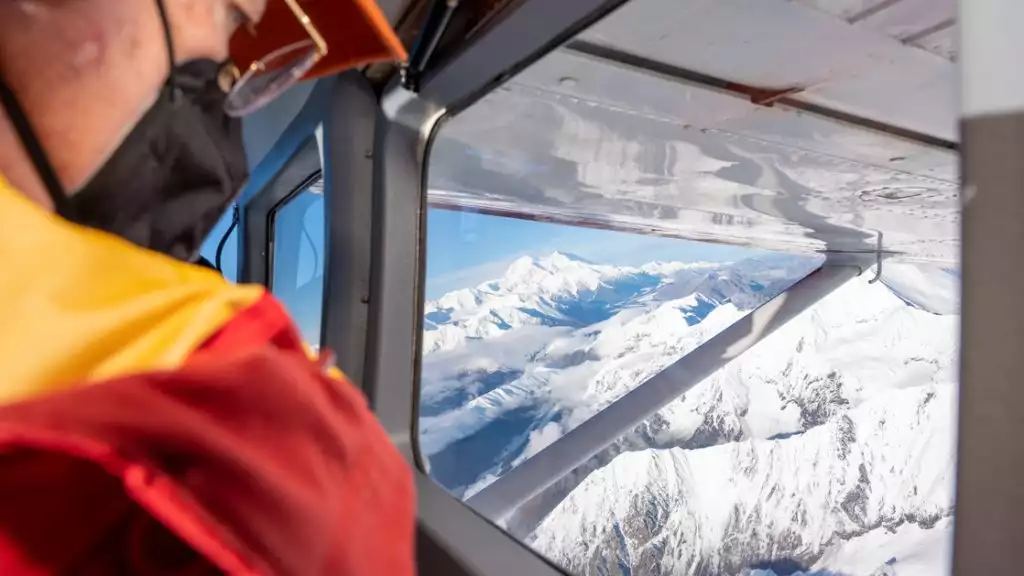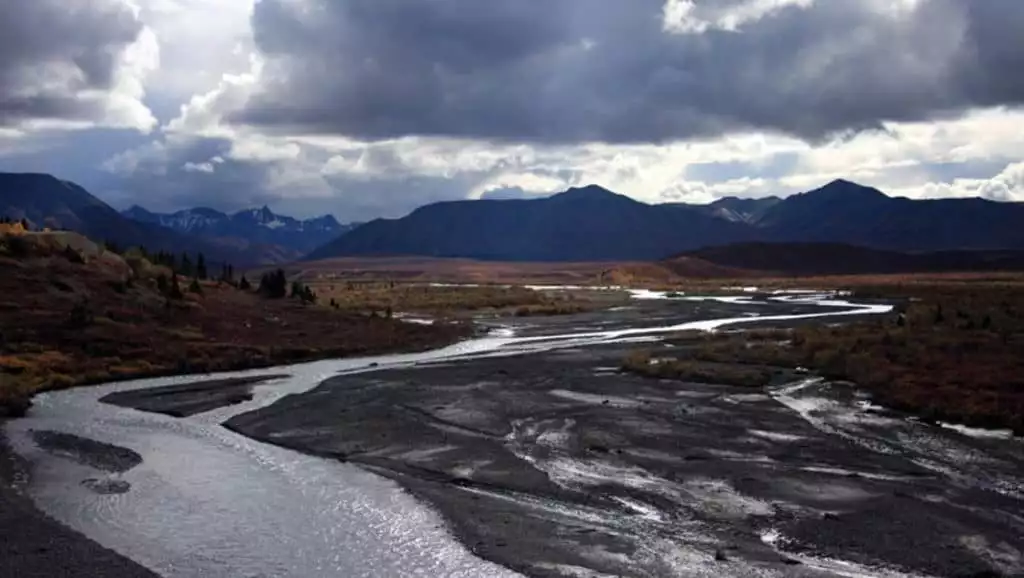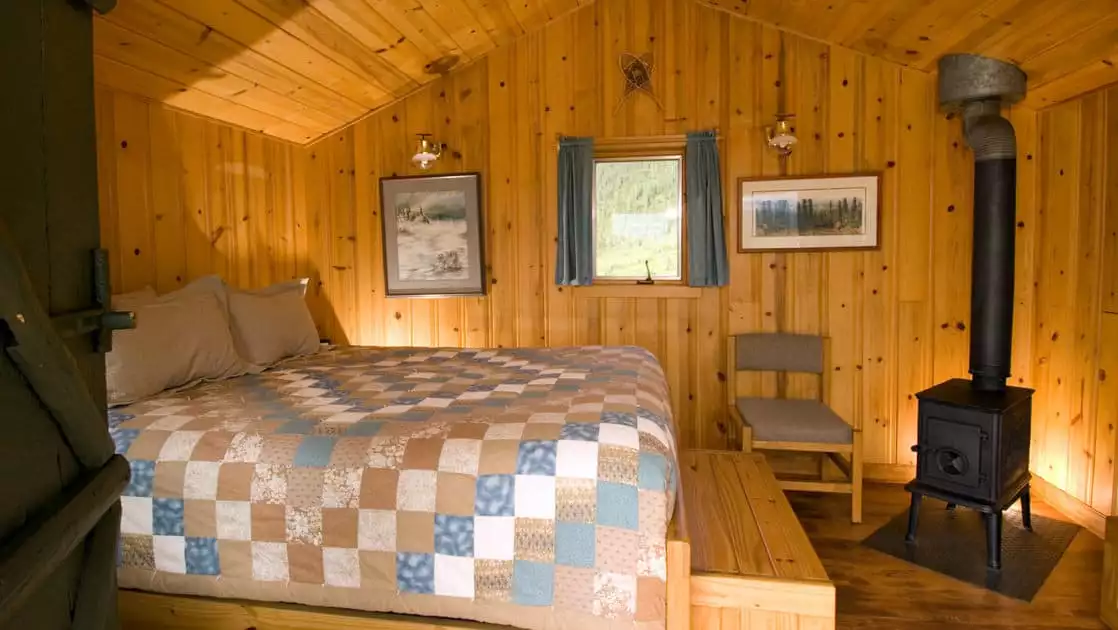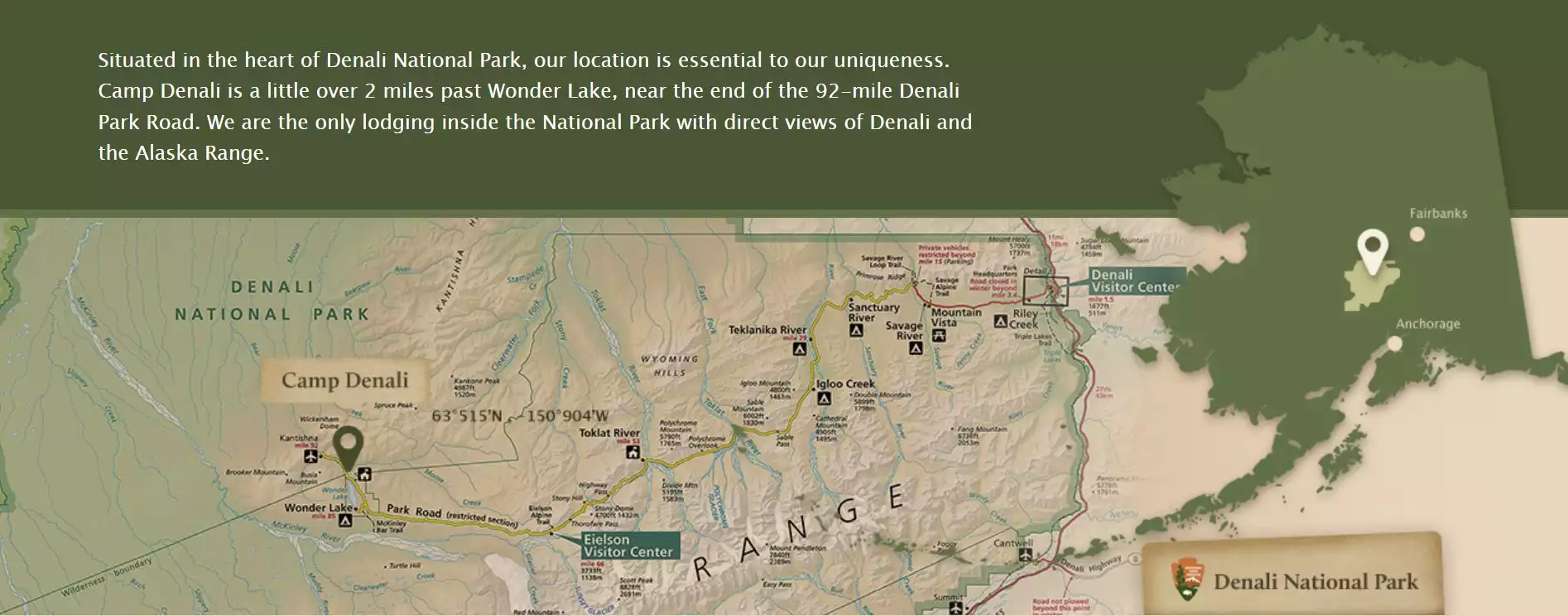Camp Denali
Located on 67 acres of sweeping ridgeline, Camp Denali and its 19 guest cabins reflect the spirit of Alaska with a presiding sense of open space and natural surroundings. Camp Denali was a pioneer in conservation and its history is intertwined with the preservation of Denali National Park. Since 1952, Camp Denali’s focus on natural history education, stewardship and hospitality combined with the extraordinary setting inside Denali National Park has inspired people from around the world. Camp Denali guests are people who want to be close to the land and can do without high-end luxury accommodations. After three generations, their philosophy remains the same: stay small, maintain a minimal footprint on the land and provide comfortable hospitality that allows visitors to experience the wild nature of Denali National Park.
Camp Denali Review
AdventureSmith Explorations’ Camp Denali review includes a detailed description and photo gallery, along with a dedicated Camp Denali Review written by one of our specialists. Our travel experts have stayed at Camp Denali firsthand and can help compare the Camp Denali guest cabins with other adventure lodging and Alaska land tours. Learn more about how to visit Denali National Park, and what sets Camp Denali apart with our expertise.
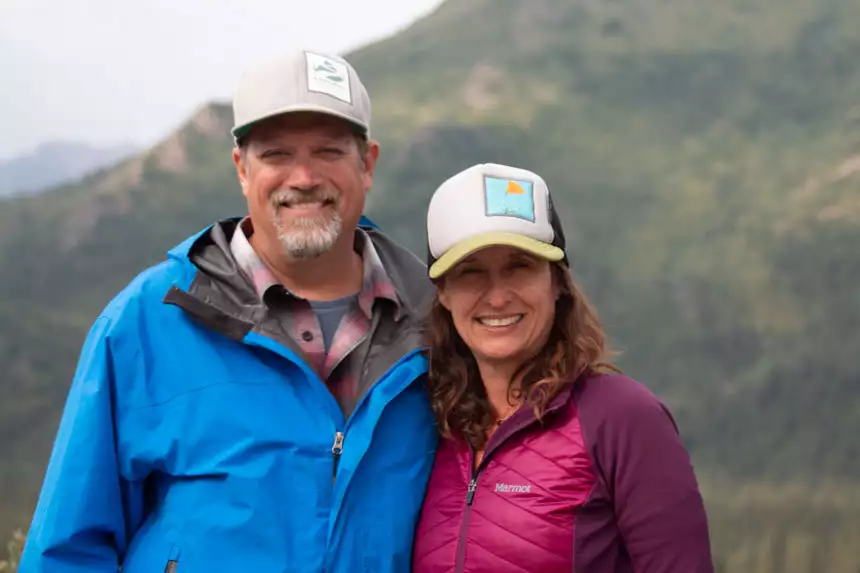
OUR EXPERTS
STAYED HERE
You have questions.
We have answers.
Choose Camp Denali for the finest experience available for travelers seeking to visit Denali National Park. Their historical connection to the National Park means they can conduct activities inside park boundaries, rather than being confined to private land in Kantishna. The staff of naturalist guides, some of whom have worked here for over a decade, are superior to any lodge or tour available. The special emphasis series of guest speakers not only enhances the guest understanding but also provides continued training for naturalist staff further lending to their knowledge and experience.
Buses are spacious with windows that open sideways, improving scenic viewing, photography and the drive through the park. The community and passionate culture of Camp Denali means guests connect with the land in a way not available at other Denali lodges or tours. It is worth it to book an extra day or two in Anchorage or Fairbanks if needed to accommodate the Friday/Monday arrival schedule at Camp Denali. We suggest you book early and work with an Adventure Specialist to coordinate a visit to Camp Denali in conjunction with your small ship cruise or custom Alaska package.
History at Camp Denali
Camp Denali is grounded by history and tradition, following the wisdom of the founders who said that in building Camp Denali the land “told us what we should be.” When founders Celia Hunter, Ginny Wood and Morton (Woody) Wood arrived in Denali in 1951, they were seeking land to homestead within view of “The Great One.” Their dream was to build a simple, rustic lodge and cabins where park visitors could come and “savor the vigor and freshness of this young country and absorb its spacious tranquility.” Friends and visitors alike helped haul logs, hack out a road and build. The original founders ran Camp Denali for 25 years, forging a livelihood out of ingenuity, hospitality and love of the land.
Today, the owners live by the same commitment to be careful stewards of this special place at the edge of Denali’s wilderness. Some 30 seasonal staff members join in that mission and provide exceptional hospitality and customer service to guests. Each year at least 75% of these individuals return to work another summer. This high return rate of such dedicated and knowledgeable staff allows Camp Denali to provide the best quality experience for guests in a setting that is beyond compare.
Design & Sustainability at Camp Denali
Camp Denali is a wilderness lodge that offers guests a true Alaskan adventure. It is situated near treeline, providing access to native tundra and boreal forest habitats right from your door. The hand-hewn log lodge, built by the founders in 1954, still offers up hospitality at the heart of Camp Denali, while guest cabins are set along an ascending ridgeline to take best advantage of the surrounding views. A new dining hall, a natural history resource collection, a modern shower and bathroom facility and other public spaces radiate out from the lodge. The newer buildings and facilities complement Camp Denali’s rich history and reputation as one of the first wilderness lodges in Alaska.
Living lightly on the land with a focus on building, fixing, sewing and cooking things from scratch is a way of life for Camp Denali. Cabins are built and remodeled on site by capable staff and old friends willing to lend a hand. Each spring is spent sewing curtains, duvet covers and quilts. Alaskan artwork is displayed in every room and building, portraying the beauty of wild Alaska. Blueberries are picked from the tundra surrounding the ridgeline and are turned into delicious jam and syrup. If it isn’t handmade on site, it is sourced from responsible suppliers. Camp Denali uses its purchasing power and consumer choice to support companies dedicated to organic and sustainable production; from cleaning products and guest amenities to napkins and towels.
Camp Denali continually works to minimize its impact on the land and on the earth as a whole. A few examples of sustainable practices include:
- Purchase of Alaska-grown meat and produce, including wild fish, pork, elk and reindeer products.
- Their newly completed 90kW solar array powers 96% of Camp Denali’s electrical needs.
- Camp Denali operates an organic greenhouse for the majority of salad greens, cherry tomatoes, herbs, cucumbers, edible and cut flowers.
- All bread flour, grains, beans, eggs, butter and milk are organic.
- Dog-friendly food scraps feed sled dogs living near the Park’s entrance.
- A solar hot water system preheats all domestic hot water coming into the Camp Denali kitchen and dining room.
- Camp Denali practices Leave No Trace principles when hiking in Denali’s backcountry.
- A little extra elbow grease is mixed with cleaning products that are gentle on the earth, non-toxic, concentrated and purchased in bulk.
- Soil for the growing operation is made from composted food and yard scraps; waste heat from the generator helps this process.
- Items not reused or consumed on site are recycled at the Park’s entrance.
Dining at Camp Denali
A gourmet culinary experience is totally unexpected at the end of the 92-mile Denali Park road, and 350 miles away from Anchorage. Guests may not be in pursuit of a unique and memorable eating experience when they book a stay at Camp Denali, but that is exactly what they get. The name of the dining room at Camp Denali, “Potlatch,” evokes a Native Alaskan tradition of sharing food in a community. Camp Denali incorporates a wider Alaskan community through a commitment to sourcing locally grown and organic ingredients.
The produce not grown on site in the greenhouse is purchased from organic farms just north of Denali National Park. Fish is obtained from farmed or wild-caught sources in Alaska. Barley cereal and flour comes from Delta in eastern Alaska, and honey travels from a family homestead just north of the Park. Chefs use the region’s best flavors and ingredients to deliver a fantastic dining experience. The final product is a work of art, served in the heart of Denali’s wilderness.
Activities at Camp Denali
Camp Denali specializes in learning adventures and hiking vacations for travelers. Through daily guided outings and evening programs, their naturalist guides share the Park’s rich natural and human history–its landscape, scenery, history and wildlife. Naturalist-led outings offer options from strenuous hiking to leisurely strolls. There is something to suit the interests of everyone while exploring Denali’s trail-less terrain and observing wildlife. Evening programs feature staff naturalists or guest speakers who are experts in a wide range of Alaskan and natural history topics. They also offer independent activities such as canoeing on nearby Wonder Lake, biking along the secluded park road, or fishing
Denali Wilderness
Denali National Park encompasses six million acres of boreal forest, tundra, rivers, glaciers and dramatic geologic relief, including the impressive massif of Denali. Standing at 20,320 feet, Mount McKinley is known around Alaska as Denali, the name it has been called by native Athabascan people for thousands of years. Mount McKinley National Park was established in 1917 to preserve its wildlife. It tripled in size in 1980 and became Denali National Park and Preserve. The homesteaded land of Camp Denali became islands of private land surrounded by the National Park. Situated for their views of Denali, the properties lie between the Park’s Wilderness boundary and the historic Kantishna Mining District.
Camp Denali Location
Camp Denali’s location is the essence of what makes the lodge special – they are the only guest lodge inside the park with direct views of Denali. Their remote location is currently only accessible by plane through their air partner, Denali Air. Starting from the park entrance, you’ll begin your experience of Denali by viewing glaciers, mountains, and tundra lowlands from the air. Weather-permitting, your arrival flight will also include a fly-by of Denali and the Alaska Range.
Camp Denali Arrival & Departure
Note that Camp Denali runs on a fixed arrival schedule, with 6-day trips starting on Thursdays, 7-day trips starting on Sundays and 10-day trips beginning on either Thursdays or Sundays. Due to fixed arrival and departure schedules, guests often find it useful to secure reservations at Camp Denali before planning the rest of their itinerary. Space is often limited.
The Guest Experience
“Denali at your doorstep” characterizes Camp Denali in the heart of Denali National Park. Camp Denali is more than a wilderness hideaway with views of North America’s highest peak. As the sole commercial operator of naturalist-guided hiking in Denali’s designated wilderness, the lodge features learning experiences for active travelers who want more than an introduction to Denali National Park. At Camp Denali, active learning and community combine to create a wilderness experience without parallel.
Camp Denali guests explore the tundra and learn about the Park’s natural history from professional naturalists and guest experts. Mealtimes emphasize camaraderie and feature fine dining with food made on site from quality, local and organic ingredients. You don’t have to be capable of scaling Denali to enjoy your time at Camp Denali; all that is needed is an enthusiasm for exploring, rain or shine, and a spirit of adventure.
Accommodations at Camp Denali
Each of the 19 guest cabins has a picture window view of Denali and offers privacy throughout your stay. The cabins are hand-crafted, well-appointed and authentic. Quilts made by staff adorn the beds, a wood stove provides cozy warmth and propane lamps light the cabins. A short path leads to a private, meticulously maintained outhouse, and a sink basin inside allows washing up. Drinking water comes from a spigot just outside and may be heated on your cabin’s propane hot plate for a morning coffee or afternoon tea. A 3- to 7-minute walk uphill from your cabin leads you to the dining room, a modern shower facility and the historic log lodge with an inviting wood stove, cozy seating, library and unparalleled views. Camp Denali is the epitome of the wilderness tradition that exemplifies what the founders envisioned for park visitors–a place that doesn’t insulate you from the wilderness you come to explore.
Camp Denali Outhouses
Each cabin comes equipped with its own private outhouse, or opt to use flush toilets in the shared main bathhouse (where showers are located). Take a flashlight (or use the near-24-hour daylight) for 10-40 steps along a maintained trail to access your regularly cleaned restroom. Note that the bears Alaska is known for, prefer to avoid humans. Alternately, the staff can provide a chamber pot in your cabin. Most outhouses offer a spectacular view of Denali; those that do not, offer more privacy.
